Robot colleagues hired to take on your mundane tasks
These bots will deal with online customer inquiries, to sort through what might be spam and what might be a genuine business lead, to manage calendars and to schedule virtual meetings for you and your other human colleagues.
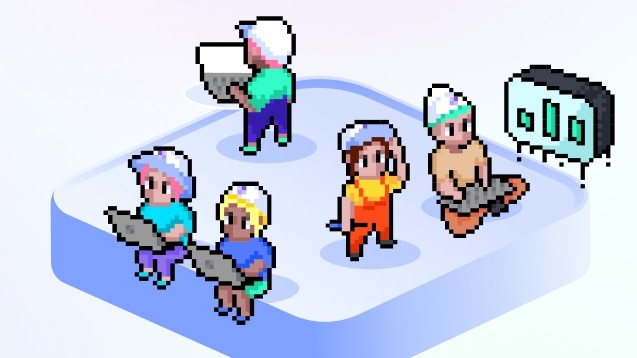
AI workers are beginning to infiltrate Australian workplaces, being effectively hired on subscription-like plans to take on some of the mundane tasks no one wants to do.
Your new AI-powered colleague is being trained to deal with online customer inquiries, to sort through what might be spam and what might be a genuine business lead, to manage calendars and to schedule virtual meetings for you and your other human colleagues.
One recent employer of one of these 21st century workers is one of Australia’s most successful start-ups, SafetyCulture, the unicorn safety and training platform founded out of a Townsville garage. The company in January this year quietly rolled out Bosh, an AI agent that managing director Mike Welch said had been on a probation of sorts for the last six months.
“It’s really like having another team member sitting next to you – one that works 24/7/365. It’s learning, growing, self-training,” he said. Mr Welch said that Bosh was helping to plug the gap between time spent on potential leads and researching new customers.
“We can now reach out to every person, and faster, with something that can think and respond in a way indistinguishable from how we would. It just feels real,” he said.

“Anything that frees up time that can be better spent helping our customers is a huge win for us.”
Bosh was built Australian start-up Relevance AI, one of several global firms who have entered the race to build an AI workforce.
The start-up’s founder Daniel Vassilev believes that before long people won’t even bat an eye at the thought of AI agents at work.
“I think there’s not going to be a single company in the world that won’t be leveraging AI. it’s just going to be a sensible business decision,” he told The Australian.
Mr Vassilev describes AI agents a bit like a chatbot 2.0, one that isn’t limited to giving simplistic answers but can enter software applications, call up documents and proactively write and send emails.
At SafetyCulture, with an AI agent able to take on some lower value tasks, staff were now able to focus on what the company considers more valuable work, Mr Welch said. “Thanks to this support in the background, that team now has more capacity to focus on delivering demos and can spend more of its time getting to know potential customers,” he said.
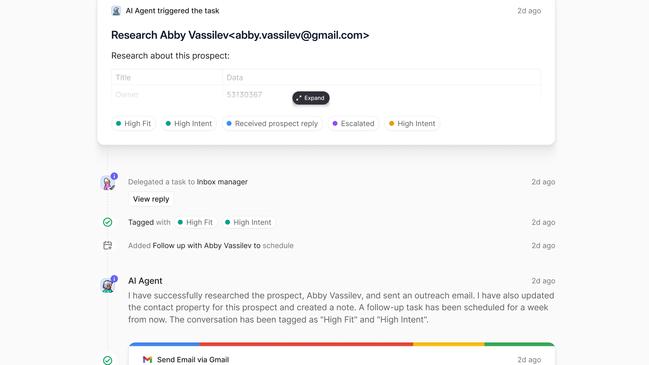
“People aren’t being dragged down by mundane tasks and so are much more motivated. They have time back to focus on what they do best, building relationships and being trusted advisers.”
SafetyCulture isn’t alone in its adoption of AI agents. Atlassian unveiled a new product, dubbed Rovo, in May that offers a platform to build AI “agents”. It all allows companies to draw insights with “piles of raw data scattered across their systems”, which Atlassian co-chief executive Mike Cannon-Brookes said could turn “information into action in a heartbeat”.
Like Microsoft’s Copilot, Rovo can generate a raft of content such as producing social media posts and summarising corporate reports. Atlassian has also worked with another Australian tech darling, visual communications company Canva, to streamline the AI-powered production of marketing content which complies with a business’s brand and other guidelines.
Mr Cannon-Brookes expects there to be “thousands of AI-driven agents” – or autonomous software programs – running in the background at companies that will help staff do their jobs and boost productivity. And he said Rovo represents a new wave of products that Mr Cannon-Brookes said could not exist without AI.
Mr Vassilev sees a future where companies won’t just have one AI agent but multiple, with these new-age workers being hired across different teams and with different tasks in mind.
“Like a human workforce, you’re so much better off when you have a diverse set of talent,” Mr Vassilev said.
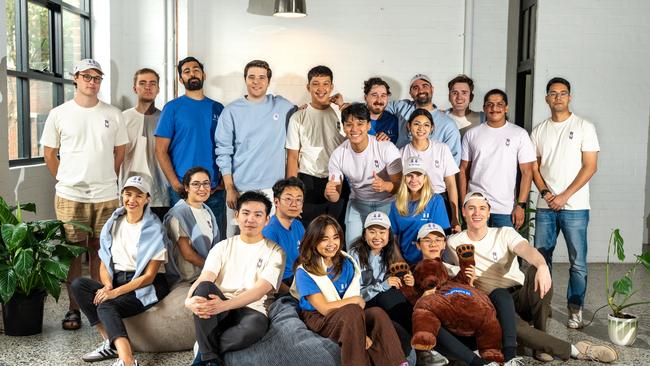
“Like a human workforce, you’re so much better off when you have a diverse set of talent. We want them to be able to collaborate and work together to solve increasingly complex problems and be more valuable to the company,” he said.
Relevance AI is of the belief that automation will change most people’s live for good.
“Talking about automation can actually sound like a dirty word to a lot of people, but for us it’s really impactful,” Mr Vassilev said.
“It helps drive a lot of really important developments for our own prosperity and we all kind of get to live better lives because of various mass automation.”
That idea is shared by a number of the company’s customers, with Relevance AI now responsible for some 40,000 AI agents out in the wild.
The AI agent trend arrives as many tech companies are transforming their office space, with many having decided they no longer need a desk for every individual worker. Such is the case in Canva’s new Surry Hills headquarters, which is set for completion in 2026, there’s just six desks for every 10 workers.




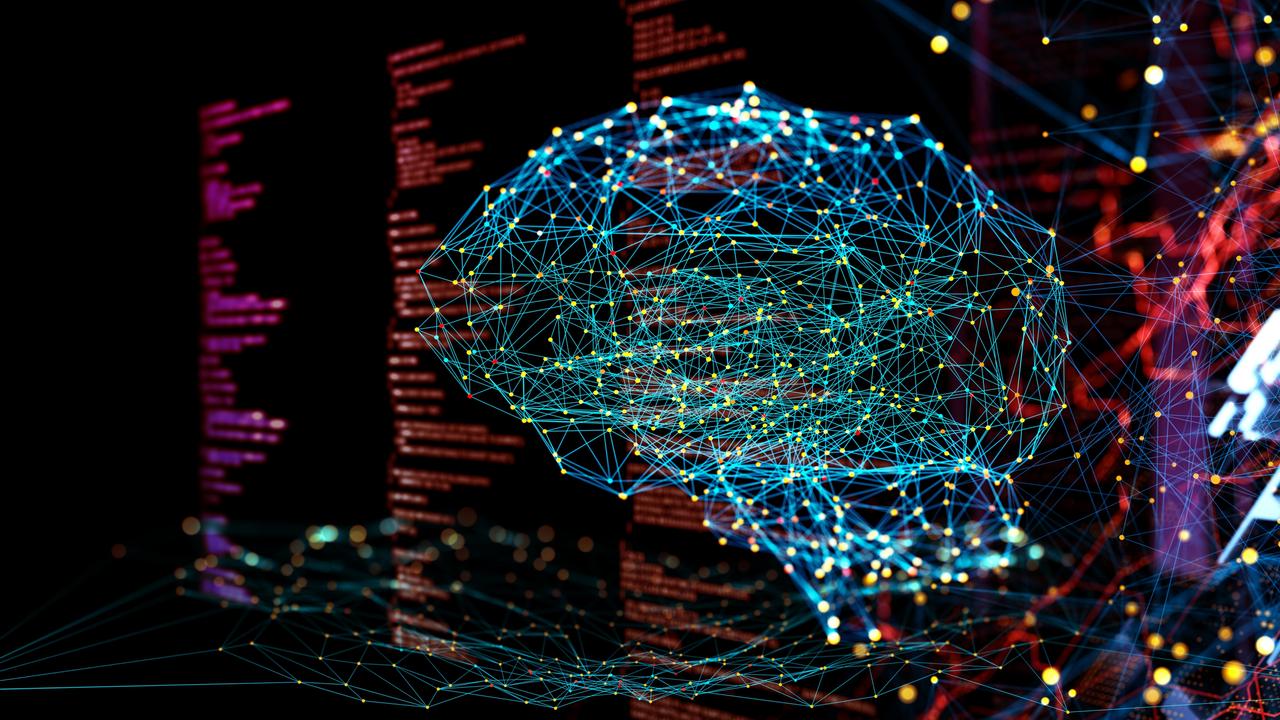
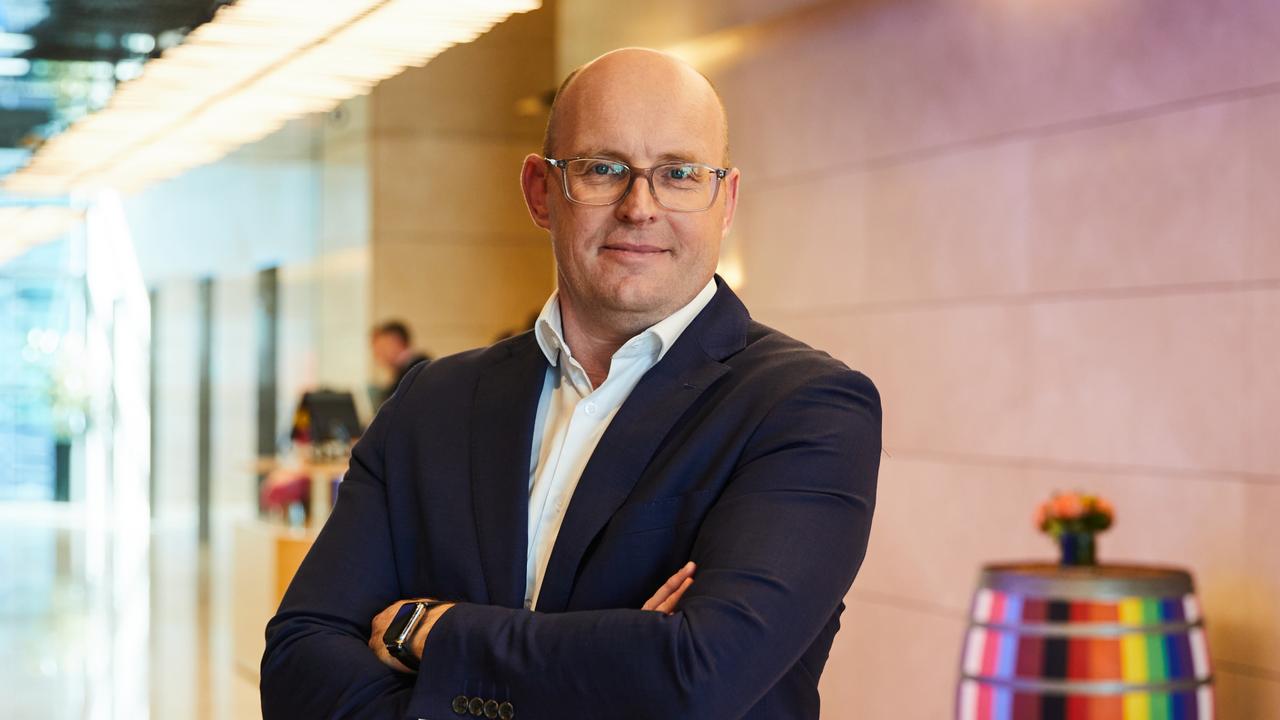
To join the conversation, please log in. Don't have an account? Register
Join the conversation, you are commenting as Logout